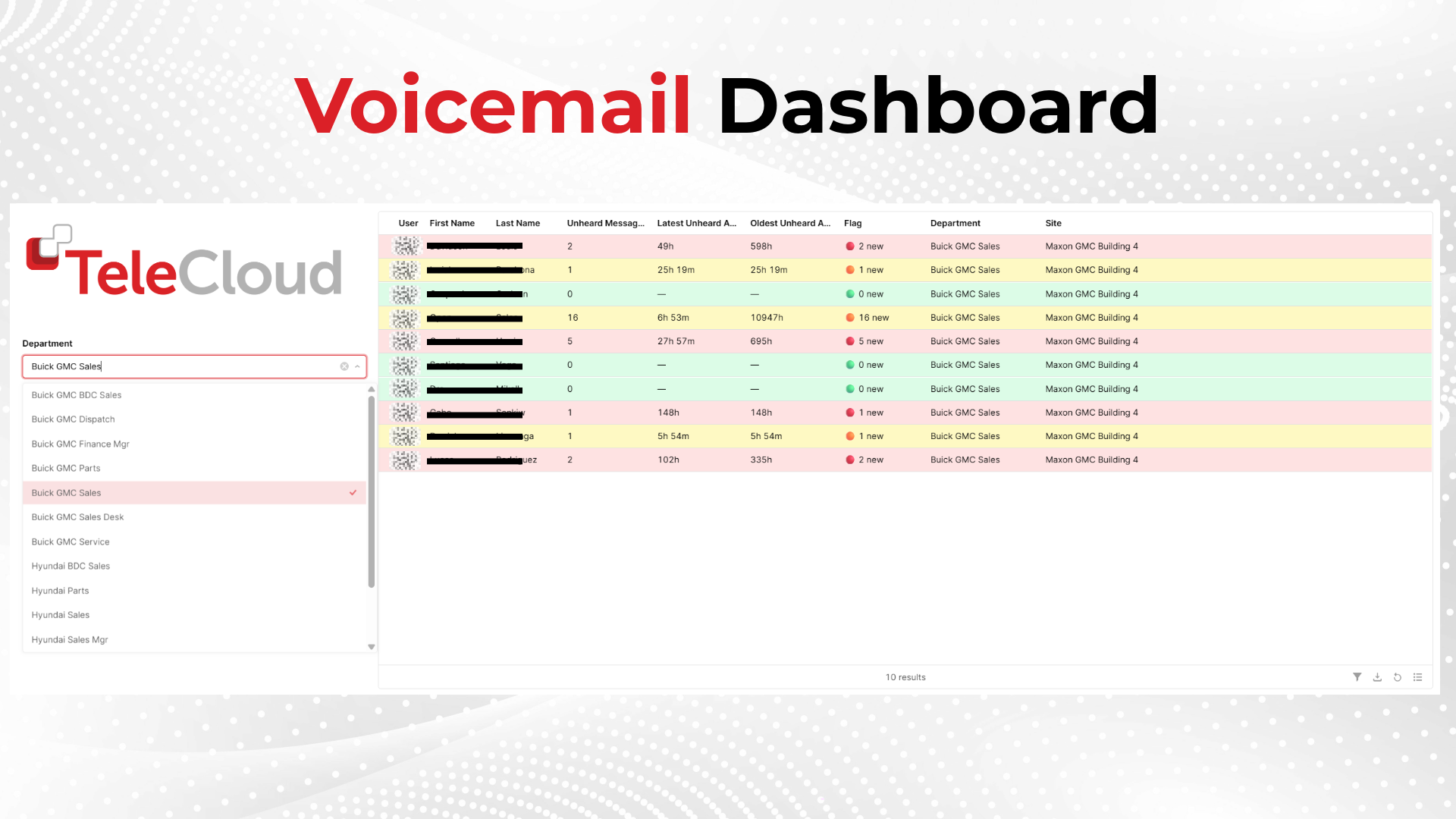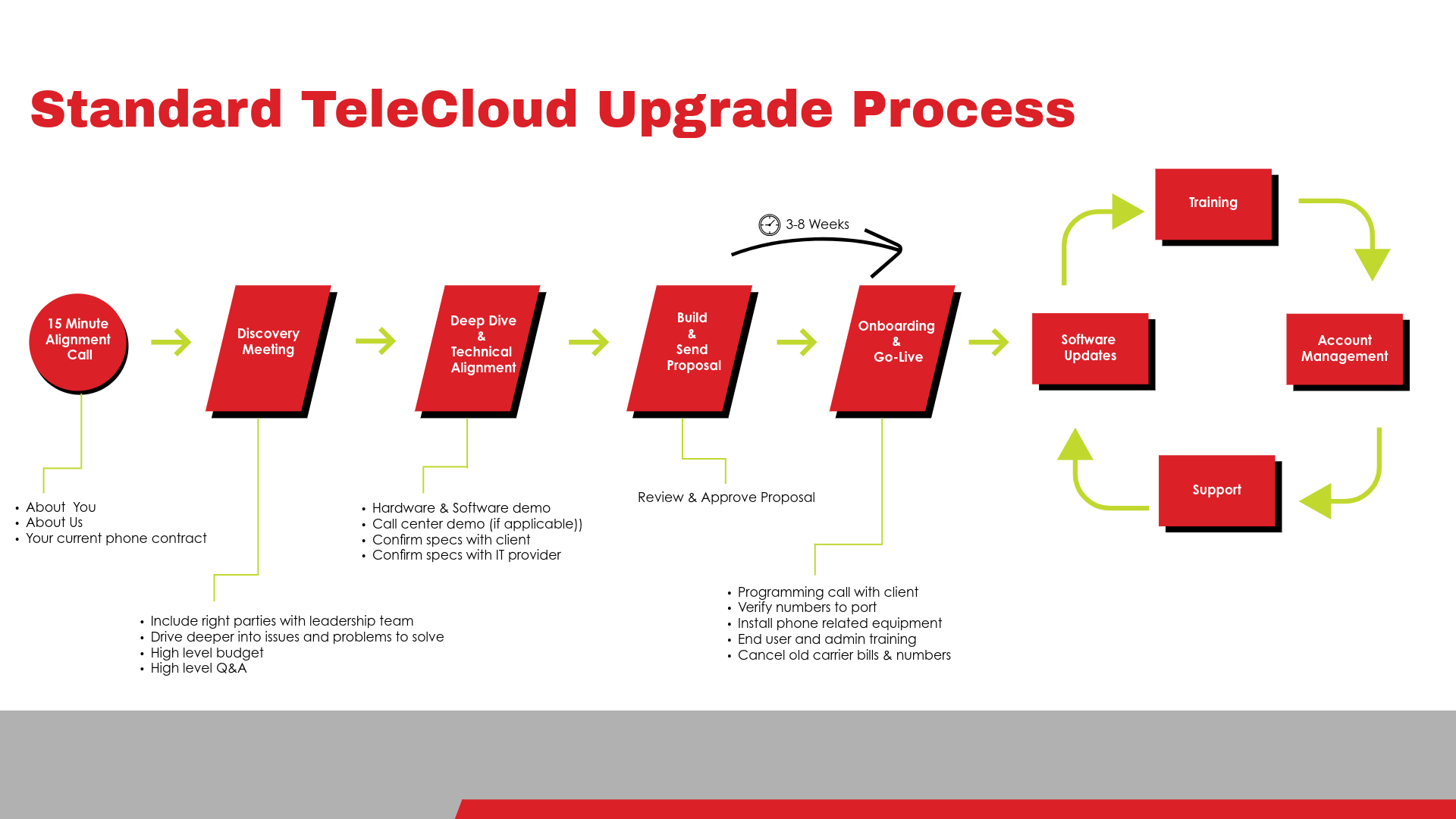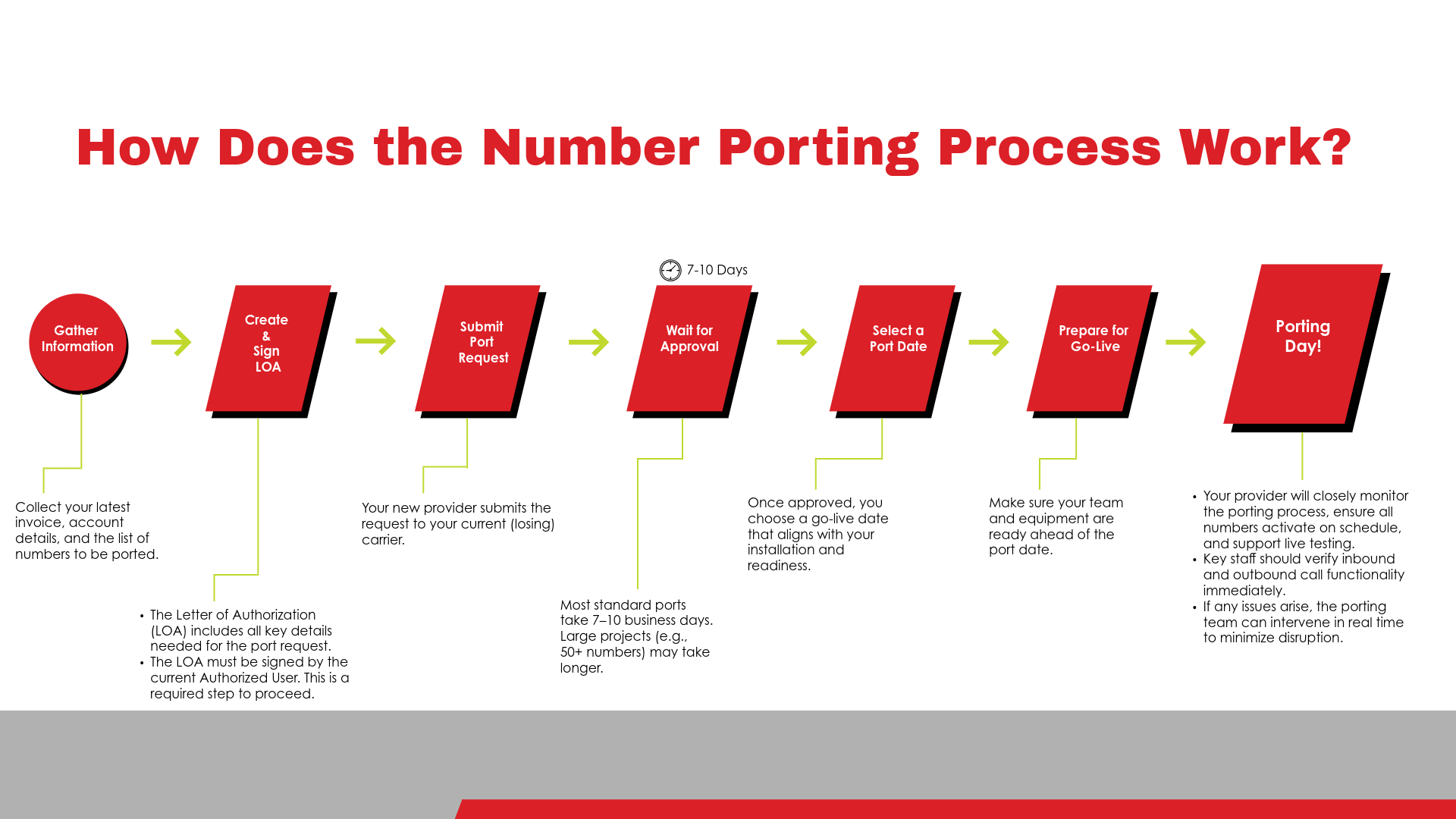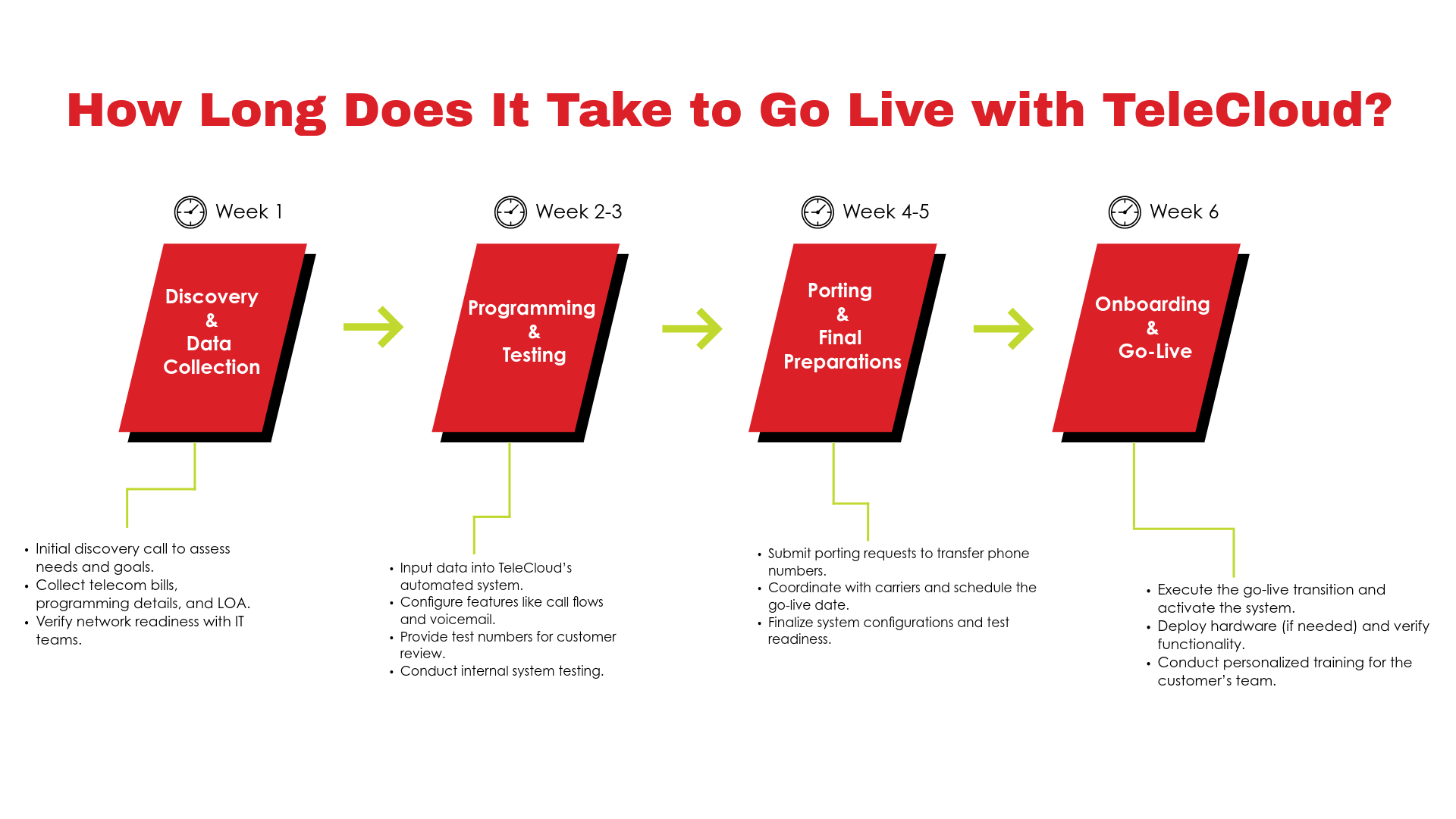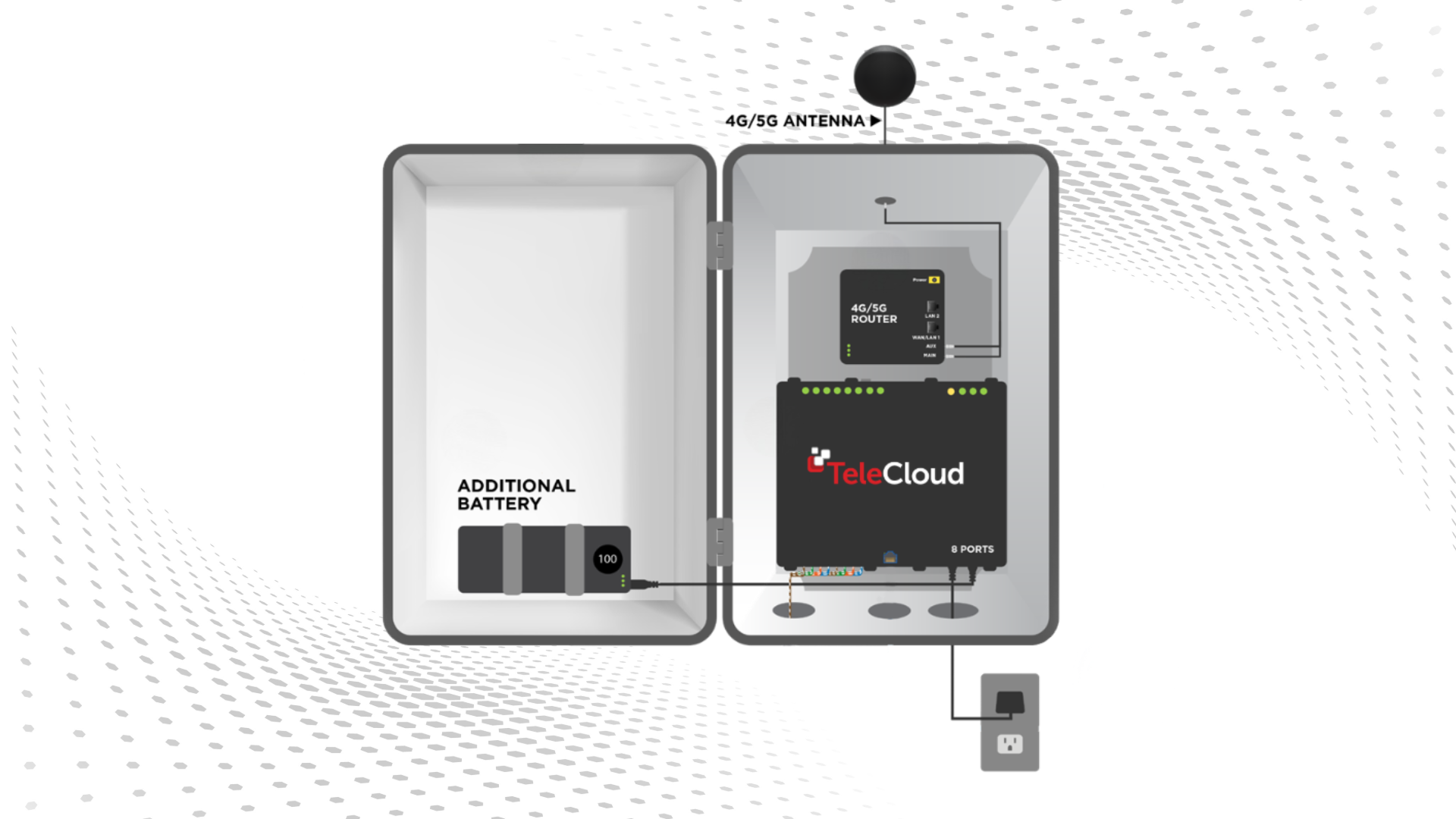
Cloud POTS Replacement is a modern, cloud-based solution designed to replace traditional analog copper phone lines (POTS) used for alarms, elevators, and other life safety systems.
Many businesses are still unknowingly relying on outdated copper POTS lines. These legacy lines support critical systems like fire alarms and elevators, but they’re becoming more expensive, less reliable, and no longer required to be maintained by carriers.
If you don’t know whether you’re still using analog lines, now is the time to check. The cost of doing nothing is rising quickly.
At TeleCloud, we’ve spent decades helping businesses manage their voice infrastructure and stay ahead of telecom shifts. We’ve seen firsthand how outdated POTS lines create rising costs, compliance concerns, and operational risk.
In this guide, we’ll explain what Cloud POTS Replacement is, why it matters, and how to know if your business needs it.
.png?width=720&height=270&name=Untitled%20(10).png) What is Cloud POTS Replacement?
What is Cloud POTS Replacement?
Cloud POTS Replacement is a hardware-based solution that connects legacy analog devices to a modern cloud infrastructure. It simulates the voltage and signaling needed by older devices but routes the call over IP networks, not copper.
It’s commonly used to support devices that can’t easily be switched to LTE or VoIP, including:
- Fire alarms
- Elevator phones
- Burglar alarms
- Older fax machines
.png?width=540&height=360&name=POTS%20Branded%20(1).png) How It Works
How It Works
The system replaces the "last mile" of copper with what’s known as the "last foot." It delivers dial tone to your equipment through a small, hardened enclosure that includes:
- ATA (Analog Telephone Adapter)
- LTE-enabled router
- Battery backup
- RJ21X punchdown block (a terminal block that allows analog lines to be easily connected to legacy equipment)
It supports up to 8 lines per unit and doesn’t require a separate device for each line.
Why Are Traditional POTS Lines a Problem?
1. They’re Getting More Expensive
Since the FCC no longer regulates copper line maintenance, carriers have increased prices dramatically. What used to cost $35 per line can now exceed $350 per line in some regions.
2. They’re No Longer Maintained
Carriers like Verizon and AT&T aren’t required to repair damaged lines. If your alarm line fails, it might never be fixed, and you’ll still be billed for it.
3. They Can Fail Without Warning
These lines often go unchecked for years. Many businesses only discover a failure during an emergency when a call doesn’t go through.
4. They Pose Compliance Risks
Analog lines transmit unencrypted data, making them a liability under PCI, HIPAA, and other compliance frameworks.
Where Cloud POTS Replacement Fits
Cloud POTS is designed for businesses that need to keep legacy equipment online without relying on outdated infrastructure.
Ideal Use Cases
- Commercial buildings with elevator phones
- Offices with fire or burglar alarm systems
- Healthcare and financial institutions with compliance requirements
- Multi-site businesses with legacy infrastructure
This solution ensures life safety lines remain active and compliant—even as carriers sunset copper networks.
What It’s Not Meant For
- New buildings with LTE or internet-based alarm systems
- Businesses without critical systems that require backup lines
- Environments unaffected by copper phase-outs
How Much Does Cloud POTS Cost?
Cloud POTS Replacement uses a flat-rate pricing model:
- $35 per line/month
- $20 per router/location/month
- $200 one-time installation fee
Real-World Pricing Examples
|
Use Case |
Lines |
Monthly Cost |
Router Fee |
Total Monthly |
One-Time Setup |
|
2 alarms + 1 elevator |
3 |
$105 |
$20 |
$125 |
$200 |
|
6 alarms + 4 elevators |
10 |
$350 |
$20 |
$370 |
$200 |
|
4 locations, 2 lines/location |
8 (2 per site) |
$280 |
$80 (4 routers) |
$360 |
$800 |
Why Not Just Use LTE or VoIP?
It’s a fair question. While some alarm lines and credit card terminals now support LTE or internet-based communication, many still require specific ring voltage or analog signaling that hosted VoIP or cable modem services can’t reliably deliver.
Cloud POTS provides the exact electrical characteristics these devices expect. That makes it safer and more compliant than trying to force-fit modern technologies into old systems.
Benefits of Cloud POTS Replacement
- Works with existing devices: no need to replace legacy hardware
- Faster setup: provision lines without waiting for a technician
- More reliable: includes LTE backup and battery power
- Cost-effective: replaces expensive copper lines at a predictable monthly rate
- Scalable: supports up to 8 lines per enclosure
Is Cloud POTS Right for You?
Cloud POTS is a practical and strategic replacement for businesses still relying on copper lines for fire alarms, elevator phones, and other mission-critical systems. It helps you stay compliant, reduce costs, and eliminate risks associated with outdated infrastructure, especially when upgrading to LTE or internet-based options isn’t viable.
Wondering if you're still paying for old analog lines? Review your telecom bills or speak with an expert to identify hidden charges and explore safer, cost-effective alternatives.
Frequently Asked Questions
What does Cloud POTS replace?
It replaces copper phone lines that support fire alarms, elevators, fax machines, and other analog systems.
How many lines can I run per unit?
Each enclosure supports 8 analog lines. More units can be added if needed.
Will it work during a power outage?
Yes. It includes battery backup and LTE connectivity.
Do I need to upgrade my devices?
No. Cloud POTS is designed to work with your existing analog equipment.
What makes it better than traditional VoIP?
It provides the voltage and signaling that critical devices need—something VoIP solutions often can’t guarantee.





